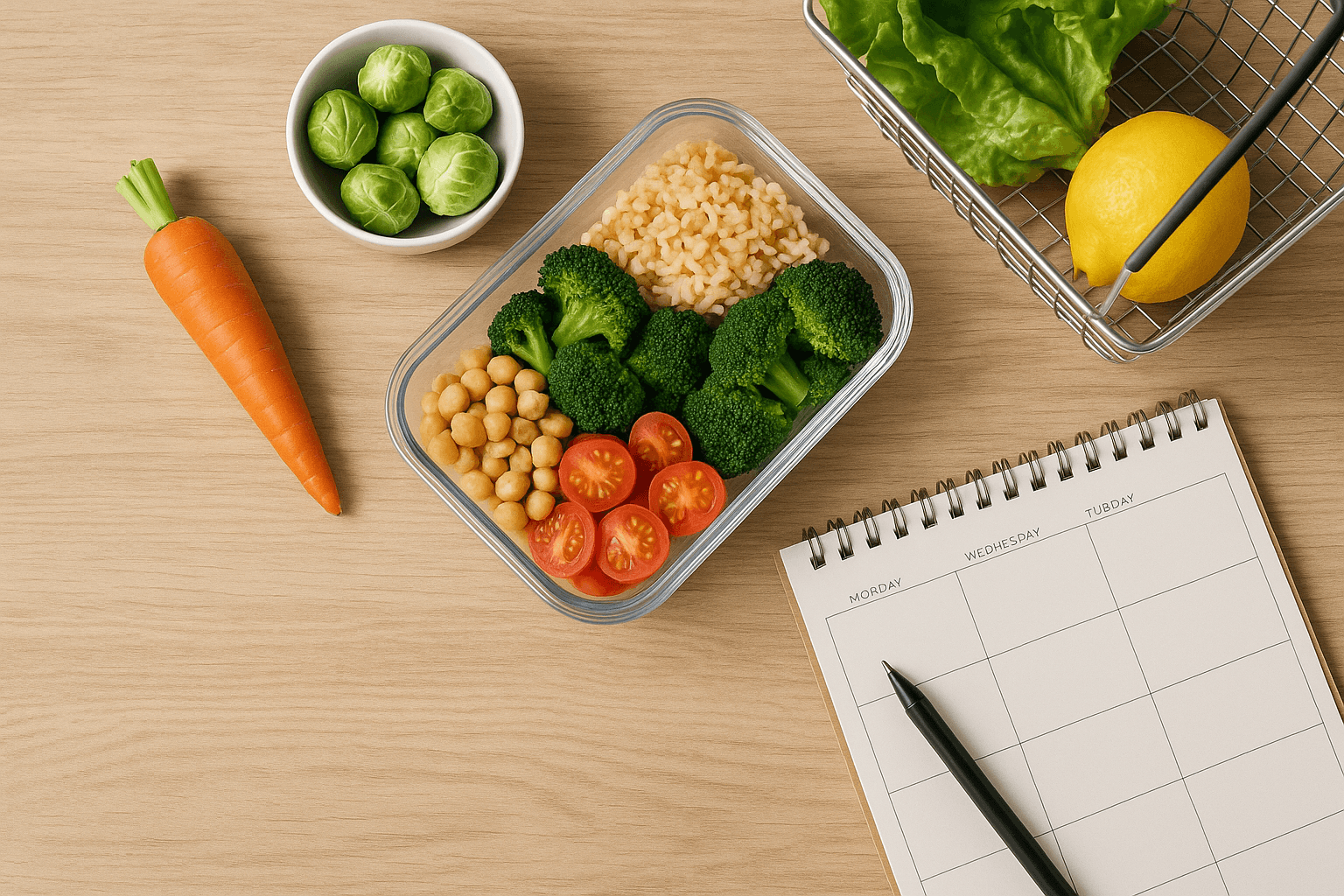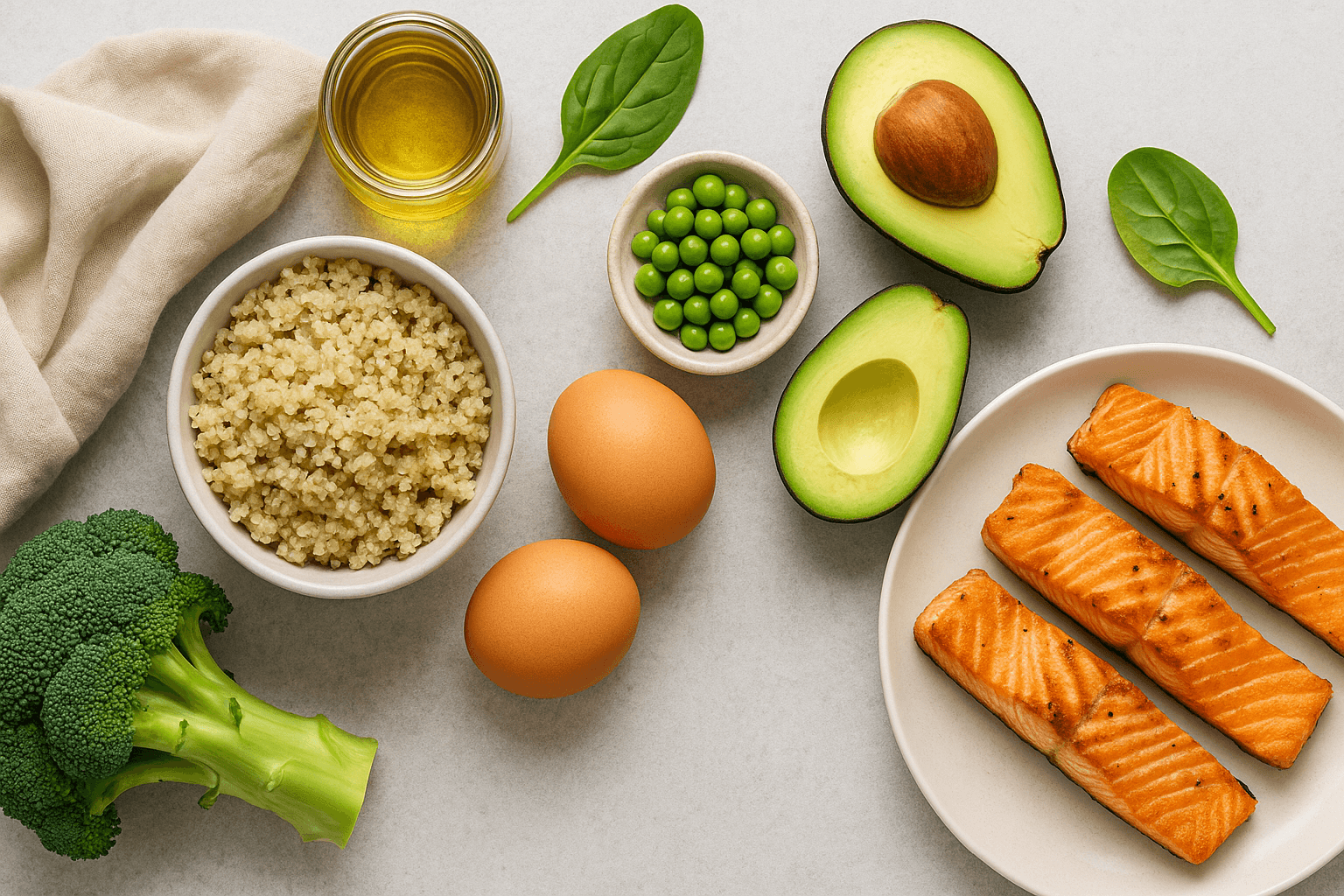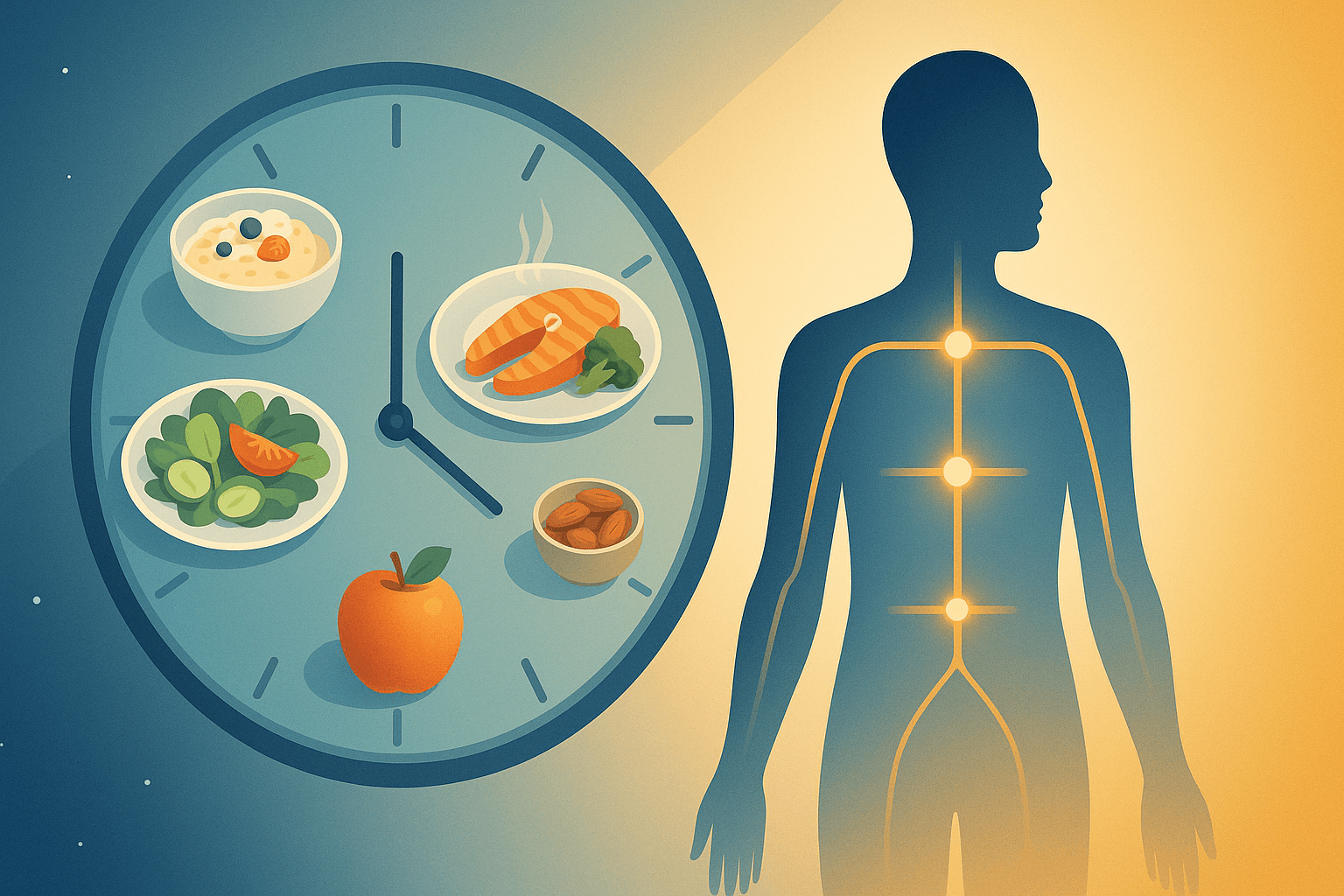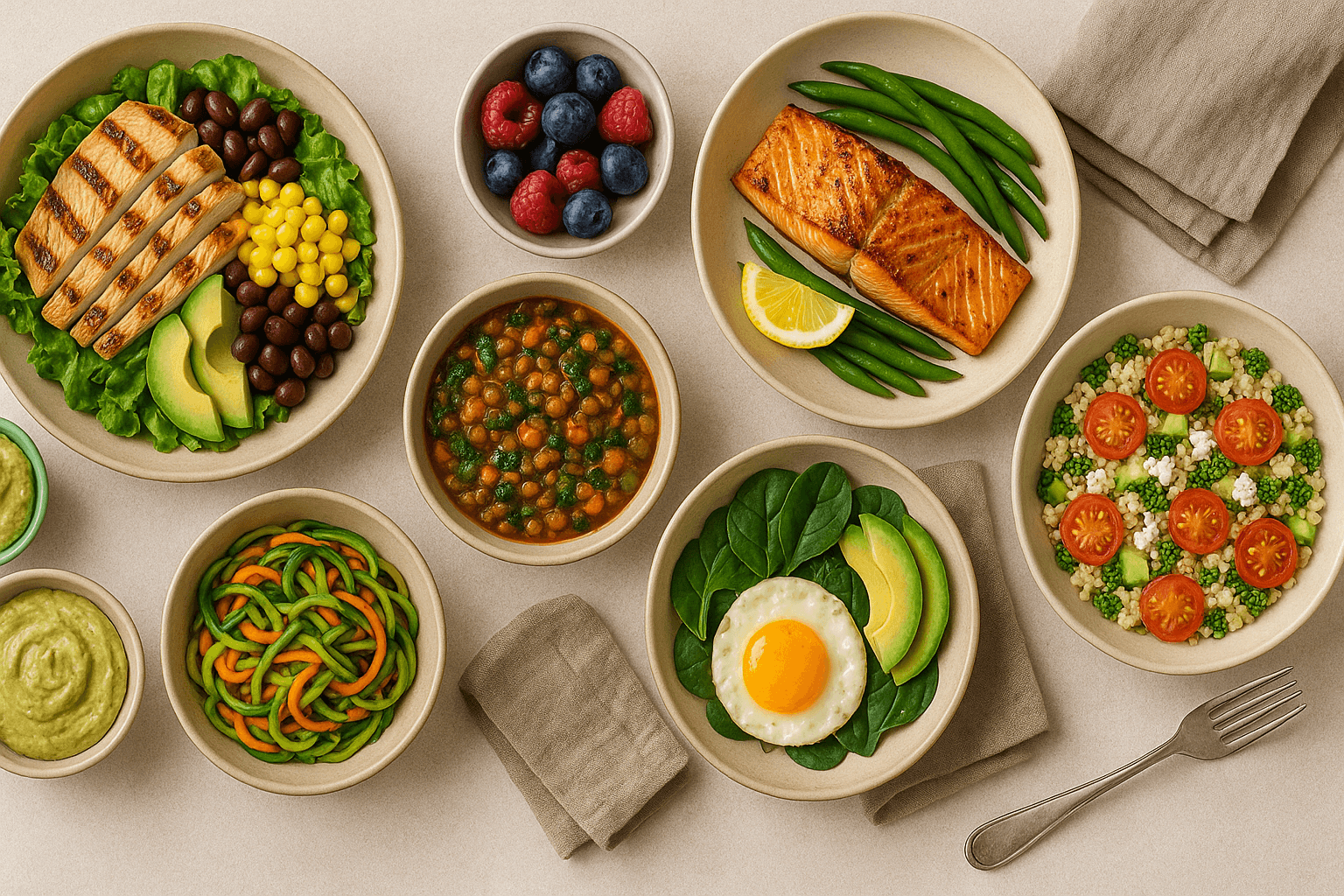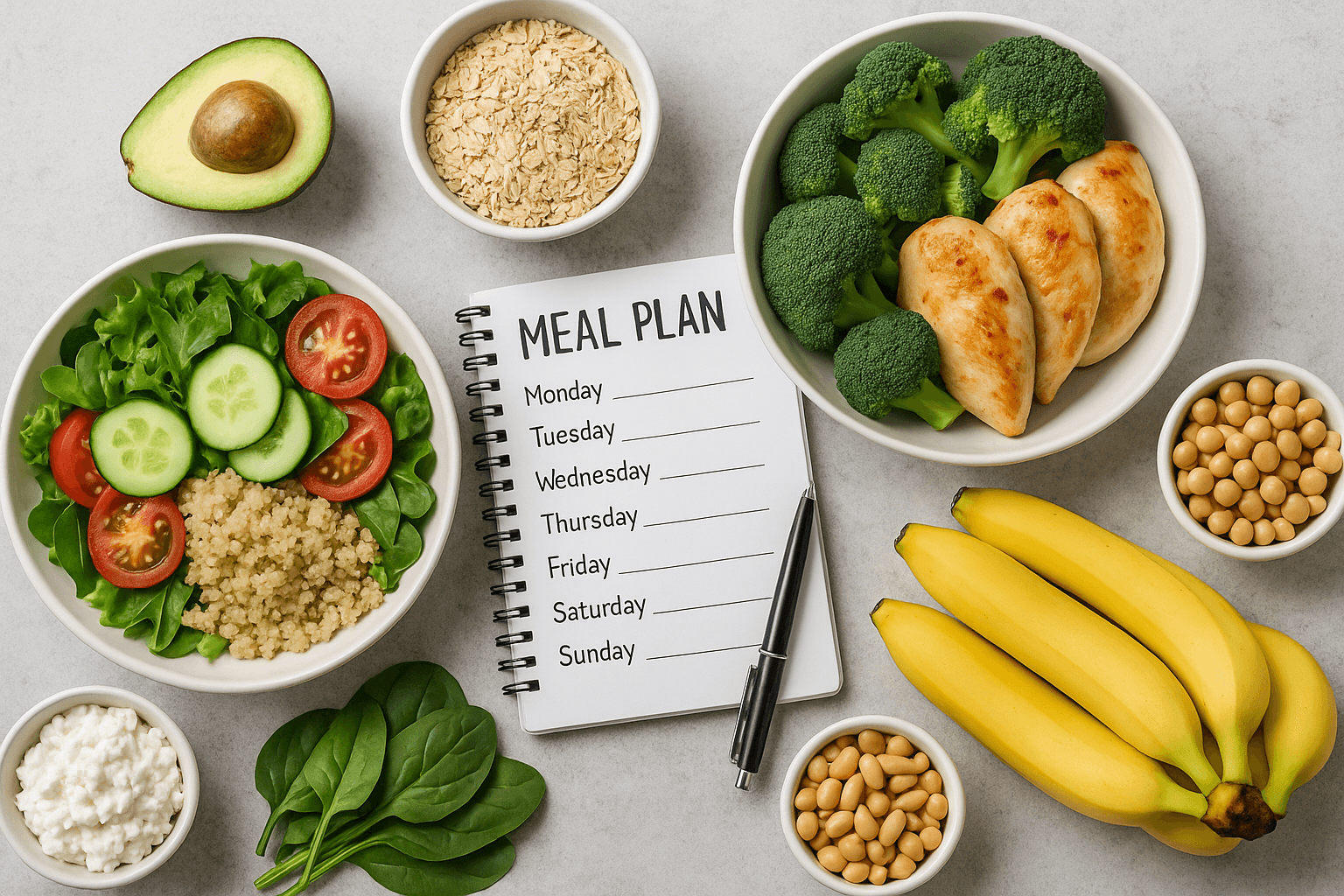MASTERING MEAL PLANNING: HOW TO BUILD BALANCED, FLEXIBLE, AND SUSTAINABLE EATING HABITS
Published on July 16, 2025
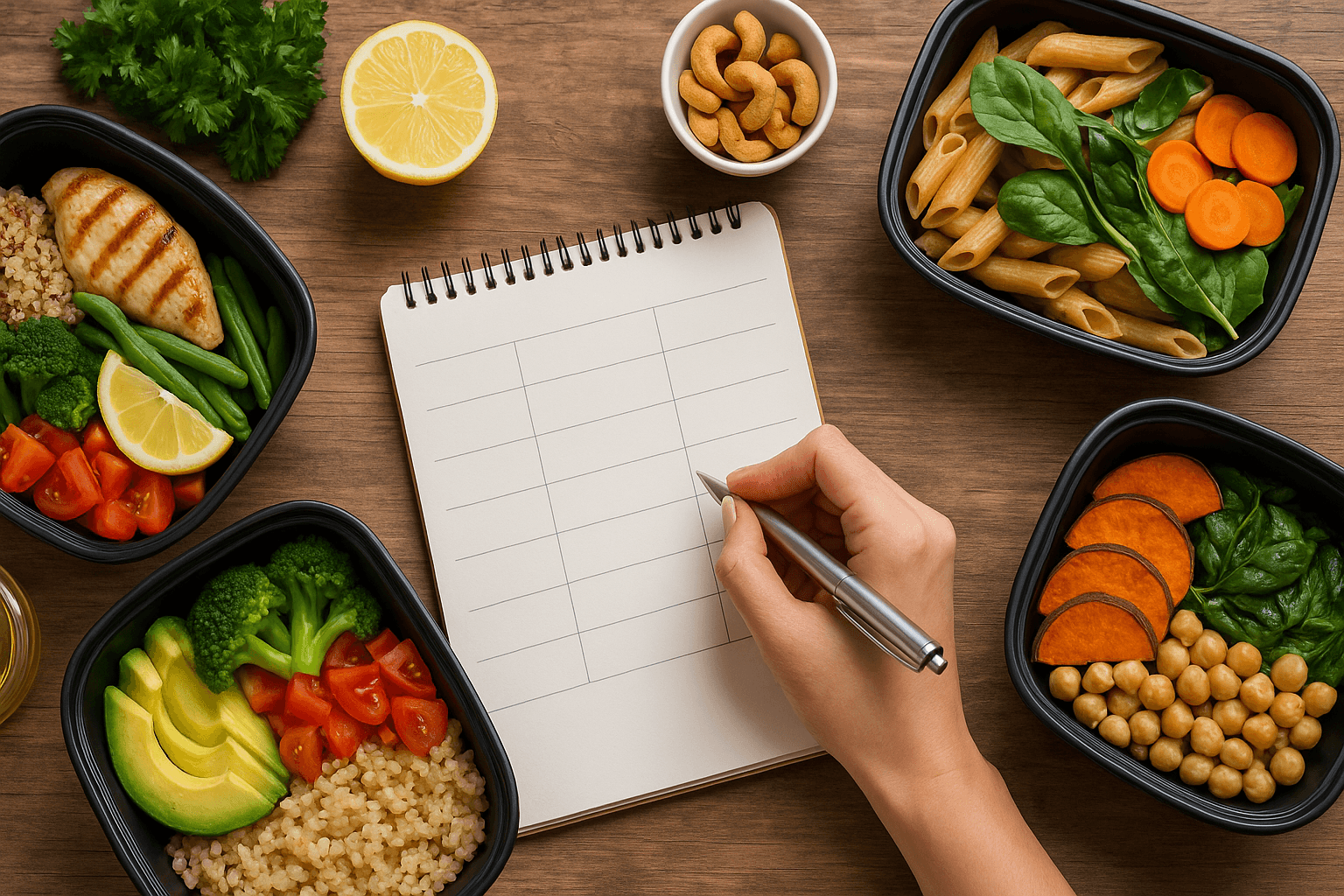
Why Meal Planning Matters
Meal planning is a powerful tool that supports your health goals, reduces stress, and helps you eat with intention. Without planning, it’s easy to default to processed foods that are high in calories and low in nutrients. Meal planning encourages:
Purposeful eating habits
Portion control and balanced nutrition
Improved immunity, focus, and chronic disease prevention
Reduced food waste and grocery costs
Less decision fatigue and impulsive eating
The Essential Ingredients of a Well-Balanced Meal Plan
Macronutrient Balance
A well-rounded meal plan includes all three macronutrients:
Carbohydrates: Found in whole grains, legumes, and vegetables; they provide energy and fiber
Proteins: Support muscle repair and hormone production; sources include fish, poultry, eggs, legumes, and tofu
Fats: Needed for hormones and nutrient absorption; healthy fats come from nuts, seeds, olive oil, and fatty fish
Nutrient Density and Variety
Choose foods that are rich in vitamins, minerals, fiber, and antioxidants. Eating a variety of colorful fruits, vegetables, grains, and proteins ensures your body gets a wide range of nutrients and promotes gut health and mood balance.
Flexibility and Realism
Allow space for treats, social events, and changes in routine. Flexibility improves long-term adherence and builds a sustainable relationship with food.
Meal Preparation and Convenience
Batch cooking, pre-slicing vegetables, and using gadgets like slow cookers and food processors saves time and keeps you on track. Having nutritious grab-and-go options prevents reliance on junk food.
How to Make Your Meal Plan
Know your goals (weight loss, muscle gain, energy, etc.)
Consider preferences, cultural traditions, and sensitivities
Choose balanced meals with protein, healthy fats, complex carbs, and vegetables
Set a realistic meal and snack schedule
Make a detailed shopping list organized by category
Dedicate weekly time for meal prep
Track how you feel and adjust as needed
Sample Meal Plan for a Day
Breakfast: Oatmeal with berries, almond butter, chia seeds
Snack: Greek yogurt with walnuts and honey
Lunch: Quinoa salad with grilled chicken, greens, tomatoes, olive oil-lemon dressing
Snack: Carrot and cucumber sticks with hummus
Dinner: Baked cod with steamed asparagus and sweet potato mash
Tips for Maintaining Consistency
Use tracking apps to stay mindful
Freeze soups, stews, and grain bowls for emergencies
Drink water consistently throughout the day
Share your goals with friends or family for support
Celebrate small wins to stay motivated
Overcoming Common Barriers
Time Constraints: Use gadgets, prep in advance, keep recipes simple
Limited Skills: Start with easy meals, use cooking tutorials
Budget: Buy seasonal produce, bulk staples, and affordable proteins
Social Settings: Plan ahead, communicate your needs, make balanced choices without guilt
The Timing and Frequency of Meals
Meal timing affects metabolism and appetite. Some people thrive on three main meals, others on smaller frequent ones. Listen to your body and stay consistent.
Psychological and Emotional Benefits
Meal planning reduces anxiety and impulsive eating. Eating mindfully enhances digestion and helps break emotional eating cycles.
Environmental and Ethical Considerations
Seasonal, local, minimally processed foods reduce waste and support sustainability. Incorporating more plant-based meals also benefits the planet.
Leveraging Technology
Apps like MyFitnessPal, Yummly, and Mealime offer recipes, grocery lists, and progress tracking to help you stay consistent and inspired.
Long-Term Success Strategies
Leave room for flexibility
Explore diverse cuisines
Join supportive communities or consult nutrition experts
Reassess goals periodically to maintain motivation
Final Thoughts
Meal planning is a transformative act of self-care. When built on balance, variety, and intention, it becomes the foundation for a vibrant, healthy lifestyle that lasts a lifetime.



